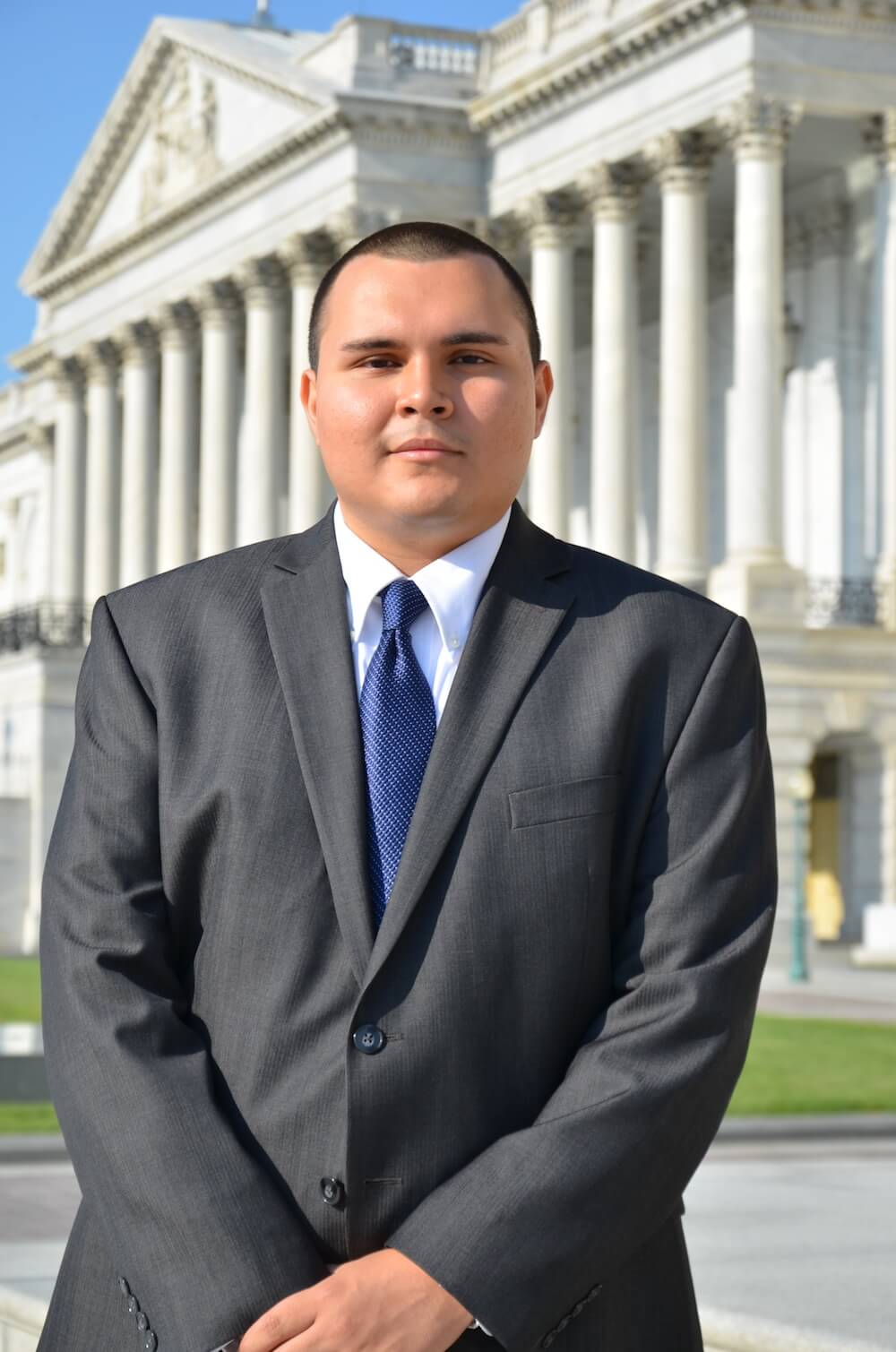The Imprint is highlighting each of the policy recommendations made this summer by the participants of the Foster Youth Internship Program (FYI), a group of 11 former foster youths who completed Congressional internships. The program is overseen each summer by the Congressional Coalition on Adoption Institute, with support from the Sara Start Fund.
Each of the FYI participants crafted a carefully researched policy recommendation during their time in Washington. Today, we highlight the recommendation of Sam Leiva, 20, a sophomore at Wesleyan University who aged out of Virginia’s foster care system.
The Proposal
Leiva proposes legislation or a change in federal protocol to ensure that immigrant parents who are detained or deported are “able to satisfy all of the requirements of their case plans before being subject to the termination of parental rights” (TPR).
Leiva would also add “additional training” for Immigration and Customs Enforcement officials, law enforcement, and child welfare agencies on the best practices involved with handling abuse and neglect cases that intersect with immigration enforcement.
The Argument
Recent research by journalist and researcher Seth Wessler estimates that 5,100 child are in foster care solely because of immigration enforcement proceedings regarding their parent or parents.
There are also parents who are involved in open child welfare cases at the time they are detained or otherwise set for deportation. In either of these scenarios, the detention or deportation of parents makes it incredibly difficult to participate in dependency court hearings, or comply with any dependency court requirements.
The detention of immigrant parents can create an innate and physical distance challenge to meeting family reunification demands such as visitation. But Leiva also cites Wessler’s interviews with detained immigrant parents, stating:
“Even detainees in the same jurisdiction are regularly barred from appearing in court by ICE, and dependency court judges cannot require ICE agents to allow parents to participate in dependency hearings regarding their children while the parents are detained.”
In His Own Words
“As a child of immigrants and a former foster youth, I understand the difficulties of being forced to leave one’s biological parents and of transitioning into a new language and culture. …These children are often separated from loving families with no history of abuse or neglect and are removed solely on the basis of their parents’ immigration status.
The Imprint’s Take
Dependency courts might not be able to tell ICE officials what do, but guess who can? The person who runs ICE. And he did, on Aug. 23, 2013.
ICE Acting Director John Sandweg, since succeeded by Thomas Winkowski, issued a nine-page directive to regional ICE divisions that, in a nutshell, instructs its field offices to factor the parental status of people in their custody when it comes to decisions about things like whether to confine them, and where.
The directive has specific instructions on child welfare proceedings. Sandweg instructed that a detained parent will be afforded the following considerations:
- The ability to be present in person at child welfare proceedings concerning the custody of his children.
- In cases where ICE will not transport the parent to a family court proceeding, efforts must me made to help them participate through video or phone conferencing.
- Court orders for visitation made by a family court must be accommodated by ICE field offices.
- In cases where a parent is set for deportation, ICE must assist in facilitating either the placement of children with a guardian in America or the return of the children with the deportee.
- For already deported parents, if termination of parental rights is on the table in family court, and the judge wants the deported parent in court for that, ICE must transport them back for the proceeding.
Here’s the catch: as we noted upon the release of the directive, there is some pretty watery language in it. For instance, the requirement is that parents are transported to be at child welfare proceedings in person if transporting the detainee “would not be unduly burdensome on Field Office operations.”
That sort of language really put the ball in the court of regional ICE leadership to either follow the spirit of the directive, or fall back on the fact that the requirements were couched with loophole-friendly language.
If one could suss out through an audit or survey on the impact of this directive, it would go a long way toward indicating the extent to which legislators might need to get involved.
Click here to read Leiva’s entire proposal and those of his fellow FYI participants.






